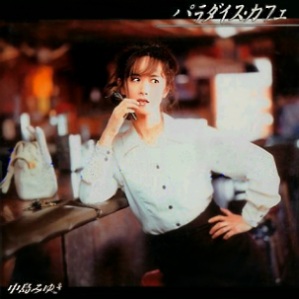
Paradise Cafe" is the 23rd studio album by Japanese singer-songwriter Miyuki Nakajima, released in October 1996. The album includes a new recording of her 1995 chart-topping hit "Wanderer's Song", and also features her own interpretation of "Lie to Me Eternally", which was originally written for the Long Time No See album recorded by Takuro Yoshida.

Lullaby for the Soul is the 29th studio album by Japanese singer-songwriter Miyuki Nakajima, released in September 2001.
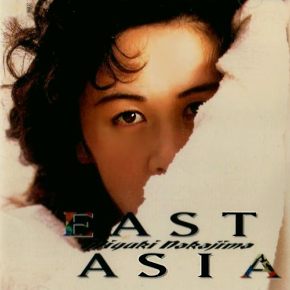
East Asia is the 20th studio album recorded by Japanese singer-songwriter Miyuki Nakajima, released in October 1992.
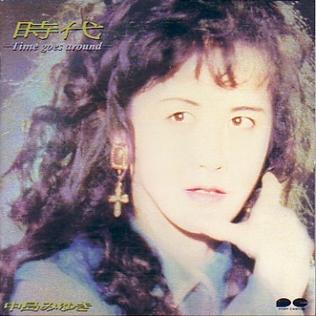
Jidai (時代), subtitled Time Goes Around, is the 21st studio album by Japanese singer-songwriter Miyuki Nakajima, released in October 1993. Like some previous materials such as Okaerinasai and Change , the album mainly consists of songs which she wrote for other singers.

Love or Nothing is the 22nd studio album by Japanese singer-songwriter Miyuki Nakajima, released in October 1994.

Uta de Shika Ienai (歌でしか言えない) is the 19th studio album by Japanese singer-songwriter Miyuki Nakajima, released in October 1991.

Otogibanashi (おとぎばなし) is the 30th studio album by Japanese singer-songwriter Miyuki Nakajima, released in October 2002. Like some efforts such as Jidai: Time Goes Around, it mainly consists of her compositions which had previously interpreted by other singers, or performed on the series of her musicals Yakai.

Goodbye Girl is the 16th studio album by Japanese singer-songwriter Miyuki Nakajima, released in November 1988.

Short Stories is the 28th studio album by Japanese singer-songwriter Miyuki Nakajima, released in November 2000. The album features commercially successful double A-Side single "Earthly Stars "/"Headlight, Taillight", which became the number-one hit in later years and sold more than a million copies in Japan alone.

Kaikinetsu is the 17th studio album by Japanese singer-songwriter Miyuki Nakajima, released in November 1989. Like some of her previous efforts, it comprises the materials that she wrote for other singers.

Lullaby Singer is the 34th studio album by Japanese singer-songwriter Miyuki Nakajima, released in November 2006.
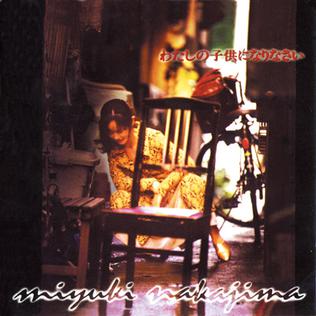
Be Like My Child is the 25th studio album by Japanese singer-songwriter Miyuki Nakajima. The album came out a month after a single "Another Name for Life", which was featured as a theme song for TV drama Seija no Koushin aired on TBS and became a smash hit on the charts.

Love Letter is the 31st studio album by Japanese singer-songwriter Miyuki Nakajima, released in November 2003.

Ima no Kimochi (いまのきもち) is the 32nd studio album by Japanese singer-songwriter Miyuki Nakajima, released in November 2004. The album contains remake versions of her compositions which came out before she created the records with Ichizo Seo, who has co-produced all of her recordings since Goodbye Girl and its lead single "Namida" in 1988.

Ten-Sei (転生) is the 33rd studio album by Japanese singer-songwriter Miyuki Nakajima, released in November 2005.

Sun: Wings is the 26th studio album by Japanese singer-songwriter Miyuki Nakajima.

Moon: Wings is the 27th studio album by the Japanese singer-songwriter Miyuki Nakajima.
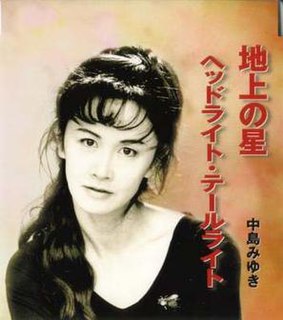
"Earthly Stars " is a song that Japanese musician Miyuki Nakajima composed and recorded for the country's acclaimed television documentary program Project X -Chōsenshatachi-, which aired on NHK during the first half of the 2000s. It was released as a double A-Side single with "Headlight, Taillight" in July 2000 and reached the number-one spot after 30 months, becoming one of the longest running singles in history of the Japanese Oricon chart started in 1968.

Midnight Zoo is the 37th studio album by Japanese singer-songwriter Miyuki Nakajima, released in October 2010.

From the Icy Reaches is the 38th studio album by Japanese singer-songwriter Miyuki Nakajima, released in November 2011.




















